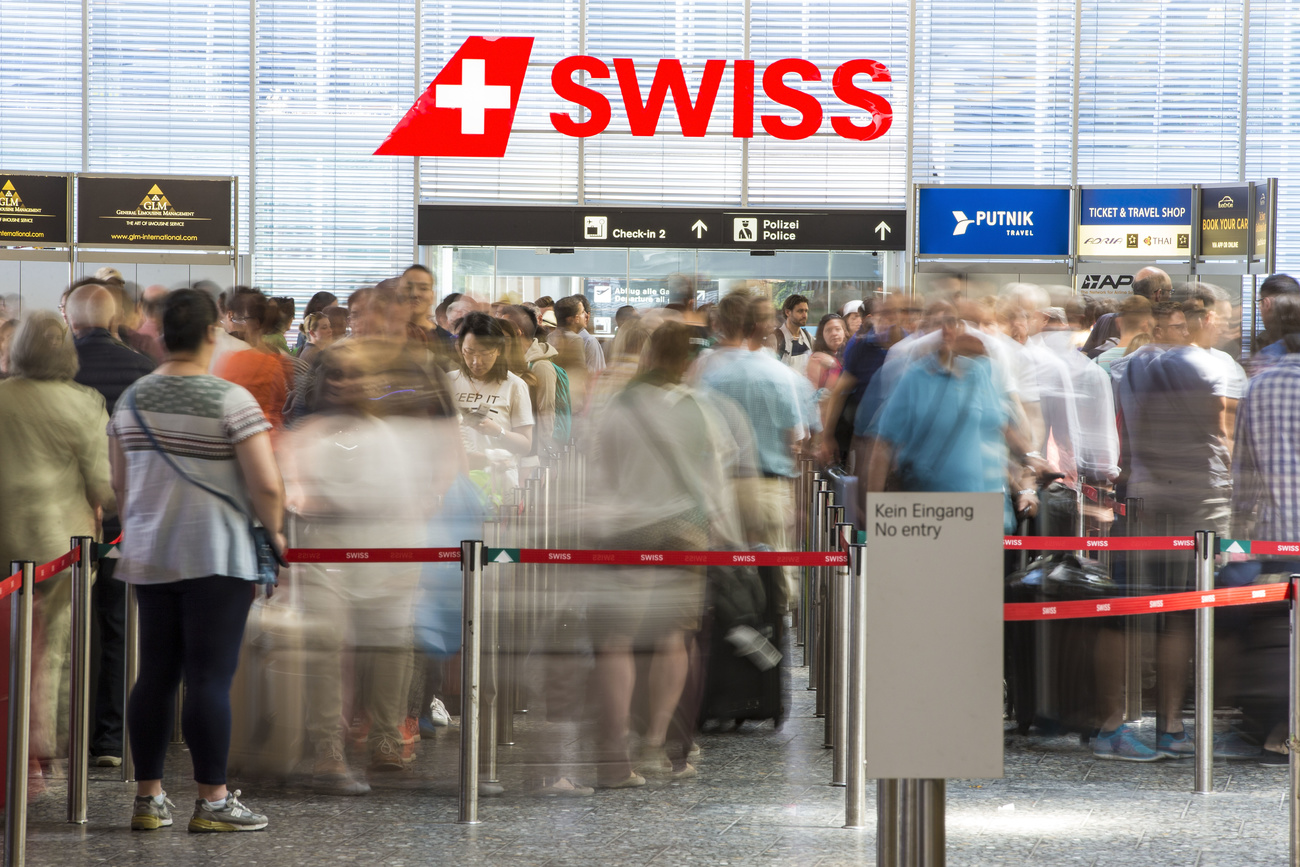
Swiss fuel CO2 emissions fell in 2024

Thanks to improvements in the energy efficiency of buildings, the increasing use of renewable energies for heating and the increased use of biofuels, CO2 emissions from fuels in Switzerland fell last year.
+Get the most important news from Switzerland in your inbox
In particular, carbon dioxide emissions from heating oil and gas fell by 4% compared to 2023, while emissions from petrol and diesel fell only slightly (2%), according to the Federal Office for the Environment (FOEN).
+ Why Switzerland’s carbon footprint is bigger than you think
With its annual statistics, the FOEN monitors the development of CO2 emissions from fuels and combustibles. In order to be able to make a comparison over the years, the influence of winter temperatures on the use of heating oil and gas is compensated for in these statistics by means of a so-called climate correction.
Net of this factor, the 4% decrease for fuels in 2024 corresponds to an overall reduction of 44% compared to 1990. This decrease is explained by increased energy efficiency in buildings and the increased use of renewable energy for heating, all measures taken by the cantons in their capacity as building managers.

More
Electric cars stall in Switzerland
As far as fuels are concerned, the slight decrease of 2% for 2024 corresponds to a decrease of 7% compared to 1990. The fact that emissions have not increased since Covid, the FOEN specifies, is attributable both to changes in mobility behaviour due to the pandemic (more telecommuting and less business travel) and to the increasing share of e-mobility in road traffic.
The share of biofuels in total petrol and diesel sales has also risen to almost 5% in 2024.

More
How green are the Swiss?
Translated from Italian by DeepL/mga
We select the most relevant news for an international audience and use automatic translation tools to translate them into English. A journalist then reviews the translation for clarity and accuracy before publication.
Providing you with automatically translated news gives us the time to write more in-depth articles. The news stories we select have been written and carefully fact-checked by an external editorial team from news agencies such as Bloomberg or Keystone.
If you have any questions about how we work, write to us at english@swissinfo.ch

In compliance with the JTI standards
More: SWI swissinfo.ch certified by the Journalism Trust Initiative






























You can find an overview of ongoing debates with our journalists here . Please join us!
If you want to start a conversation about a topic raised in this article or want to report factual errors, email us at english@swissinfo.ch.